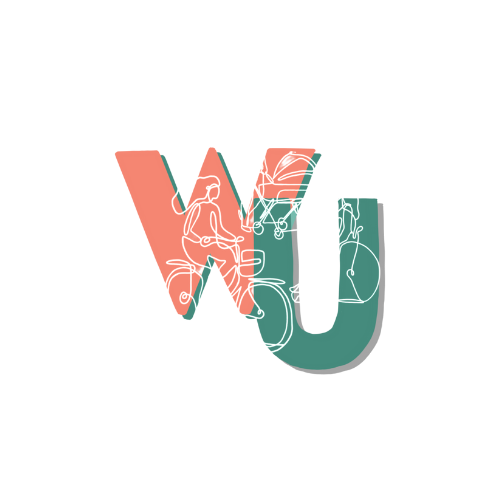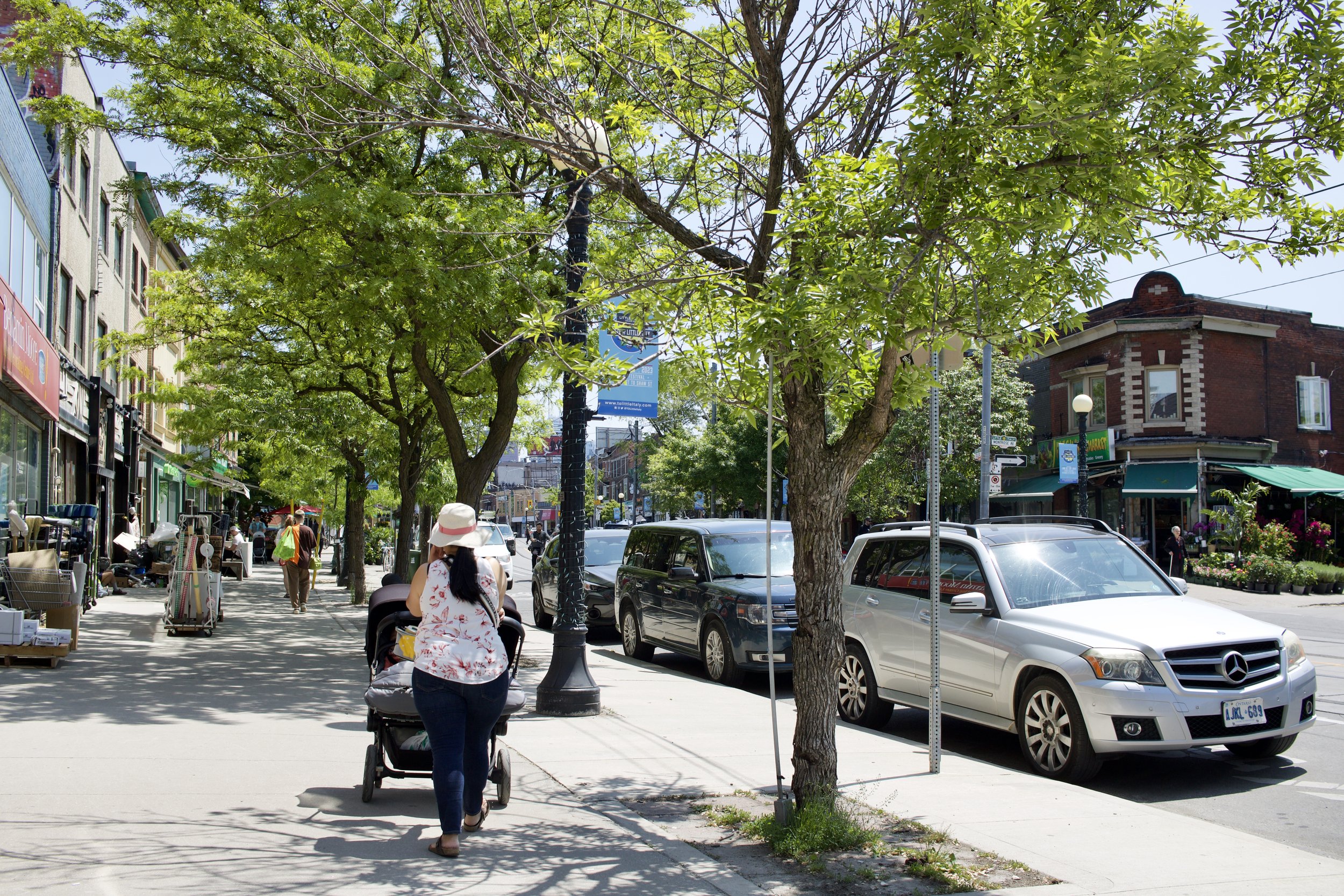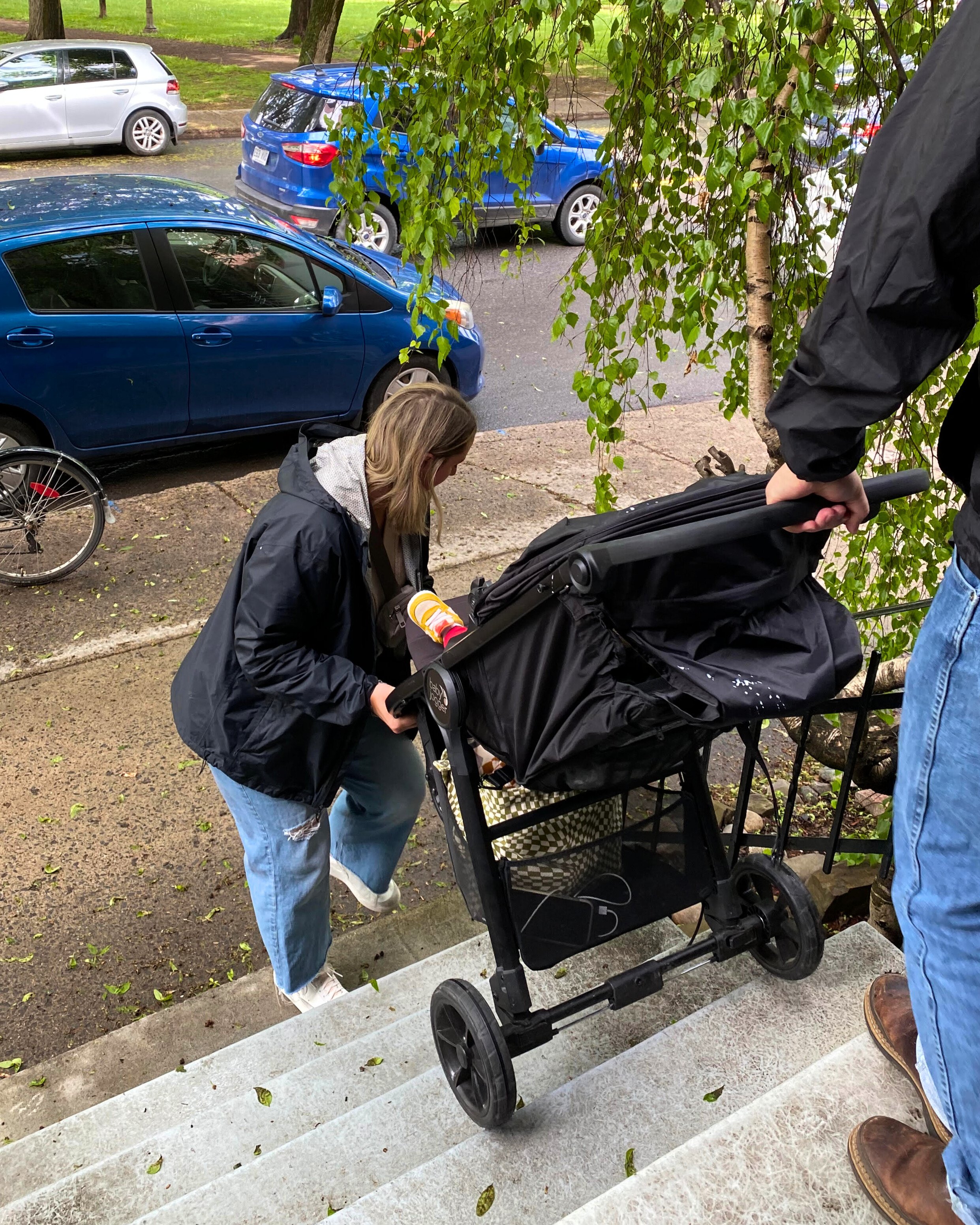Navigating Motherhood in the City
Author Dorsa Sobhani with her daughter. Photo taken by Crystal Sing.
I have a 15-month-old daughter. She is a source of wonder, amazement, and everything I could have ever hoped for. The journey to becoming a parent has been a blend of challenges and beauty. I was fortunate to have incredible support from my family, professionals, and the community. This support was invaluable, especially when I encountered unexpected challenges in motherhood. Despite reading books, attending workshops, and enrolling in prenatal classes, there were many aspects I had not anticipated. It was a stark reminder of how much I did not know.
Before having a child, I always thought the most challenging part of becoming a parent would be giving birth. I didn't anticipate how challenging pregnancy or breastfeeding could be and how the environment I live in could affect my experience. Getting to work on a snowy, icy day when the roads hadn't been cleaned properly and worrying about falling as I tried to get to my car while pregnant was not a great experience. Using public transit while heavily pregnant presented its own challenges; people often seemed too focused on their phones to notice what was happening around them, leading to pushing and shoving while I was trying to slowly get to where I needed to go. At that time, I wondered how those with less visible disabilities managed in such environments. That was just the beginning. Later on, as I strolled around with my newborn, I noticed even more how inaccessible this city can be and how hard it is to find public spaces designed to accommodate all members of society.
A woman pushes a stroller up a steep hill in Copenhagen, DK. Photo taken by Nicole Roach.
As a counsellor and a human rights advocate, I knew I had rights when it came to breastfeeding in public, but being able to nurse my child in many public spaces ended up being a challenge. Canadian women secured the right to breastfeed publicly through legal and societal changes, with significant progress made in the late 1990s and early 2000s. Knowing I had the right to breastfeed in public made me feel protected, and I was ready to confront anyone who might object. Aside from a few looks, I never faced any comments. The issue presented itself when I started going out with my baby more often and realized that finding a place to sit and breastfeed was often a struggle. Many areas lack adequate seating, making finding a place to breastfeed challenging. So even though you have the right to do so, you do not have the option in many spaces. I remember once sitting in a fitting room of a store to breastfeed my baby because I couldn't find any seats nearby, and my newborn needed to be nursed.
I only realized how inaccessible Vancouver was once I became a parent. As I navigated around the city with a stroller, I was surprised by the numerous obstacles such as stores with no ramps, sidewalks lacking accessible openings, damaged sidewalks and places with either no elevators or ones that required a lengthy trek to reach. The absence of clear signage to direct you to the nearest elevator was another challenge. These barriers, previously unnoticed, now filled my thoughts, particularly in consideration of those with more significant accessibility needs than my own.
A woman pushing a stroller in Toronto, ON. Photo taken by Nicole Roach.
Going around the city with my little one, I also realized that many spaces lack changing tables, making it difficult to find a place to change my baby. Although Vancouver has improved in some respects, many areas still have gendered bathrooms, with changing tables only in the women’s bathroom. This posed a challenge when my spouse, who identifies as male, needed to change our baby. We were once treated very poorly in Whistler because I had to enter the "male" bathroom to help my spouse as he was trying to change our baby in a space that was not made for it. Similarly, we attended a swim class with only gendered changing rooms and no family rooms, making it hard to get our baby ready for the class as there was no space to place our infant safely while we had to change and get ready ourselves.
Another realization I had as a mother is how hard it is to find childcare in the city and how this shortage is an infrastructure issue. My spouse and I applied for several daycares while I was pregnant, and 15 months after our baby was born, we still didn’t have a daycare spot. Unfortunately, this is a significant issue as many women, often the primary caregivers, cannot return to work due to the lack of available childcare. As much as we need roads and bridges to commute to work, we also need access to childcare to accommodate the primary caregivers of infants who need to attend work.
Parents navigating stairs with a stroller in Montreal, QC. Photo taken by Holly Hixson.
Isolation can be detrimental to mental health. As a mental health professional, I know how harmful isolation can be. Many new parents experience isolation. Individuals who go through pregnancy loss or other challenges might struggle to get the support they need and may not feel comfortable discussing their experiences with friends and family. Building spaces for people to meet and connect is crucial. Vancouver has excellent public and private programs, such as libraries and Family Places, which help build community. Unfortunately, many new parents do not know about these programs and don't know how to access them. It’s crucial that more information is provided to new parents about the importance of community and how to access these resources. Additionally, we need more child- and breastfeeding-friendly community spaces, and these need to be easily accessible for people to connect.
Children playing together at the Love30on30 community street safety event in Winnipeg, MB 2020. Photo taken by Nicole Roach on behalf of Green Action Centre.
The journey to becoming a parent is both beautiful and complex. Becoming a parent is the most amazing thing I have done and the most demanding job ever. In this journey, I have learned much as a person, mother, and counselling therapist. It has given me a new perspective when working with parents, especially mothers. One of the most significant lessons I have learned is the importance of community; it truly takes a village. I have also learned how important it is for cities and spaces to be accommodating, acknowledge the presence of all members of society, and do a better job of being more accessible.
Dorsa Sobhani with her daughter. Photo taken by Crystal Sing.







